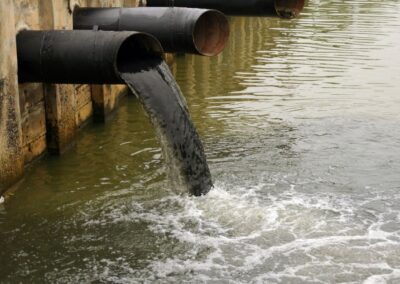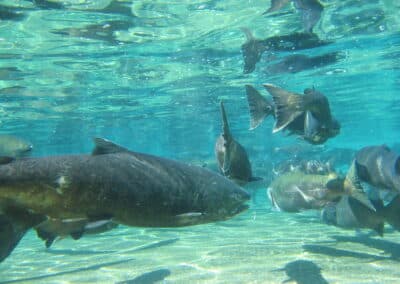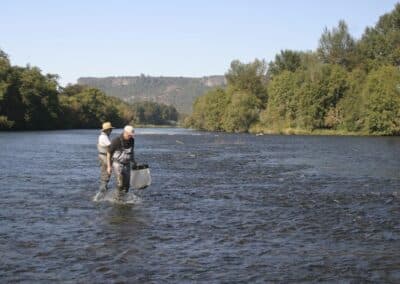Issues
Water is necessary for life. Streams, rivers, lakes, and estuaries must be protected from pollution discharged from cities and factories. Water quality is also a mirror of human actions on the land, such as logging, farming, grazing, irrigation, mining, and urban development. Protecting the quality of our water means recognizing the connection between all human activities and this precious resource.
Regulating Water Pollution
- Clean Water Act
- Water Quality Standards: Foundation of the Clean Water Act
- Polluted Runoff: Nonpoint Sources
- Discharges that Require Permits: Point Sources
- Protecting Threatened & Endangered Species
- Ship Discharges of Invasive Species
Types of Pollution
Specific Water Topics
The energy we depend upon to cook, illuminate and heat our homes, and move about comes at a cost to the environment and our health. The challenge is to choose energy sources that will not ruin life as we know it—whether through climate change, radiation-induced cancers, or habitat destruction—yet will be there when we need it. The most efficient and clean sources of energy are not necessarily those that will reap the greatest financial rewards for energy producers.
Energy Sources
Protecting the health of species—fish, birds, amphibians, mammals— and protecting human health from pollution are often synonymous. Toxic contaminants have the worst effects at the top of the food chain—on people, eagles, and orca whales, for example. But many of the most devastating effects of pollution can disrupt entire food webs—those carefully balanced worlds in which microscopic plants and animals are food for yet larger creatures that are the prey for small fish that are eaten by the iconic salmon—that underpin our environment and our lives.
Regulating Threats to Species
- Invasive Species: Ship Discharges of Ballast Water
- Salmon, Steelhead, and Bull Trout: Temperature Standards
- Threatened & Endangered Species: Toxics Standards
Pollution and Habitat Threats to Species

How Congress’ Clean Water Goals Get Defeated

EPA Must Protect Idaho Salmon from Mercury Pollution

